BABY BOOMERS… Get More Energy
The Multiple Health Benefits of Coenzyme Q10
Supercharge Your Cellular Energy
Could you use more energy? Most lO-year-olds are bursting with energy. At age 30 most of us still have plenty of energy. By 40 we’re beginning to slow down, but experience allows us shortcuts to reduce our energy needs. However by age 60, our energy levels are so depleted that even the wisdom of our years can’t make up for our decline. If we make it to 80, we’re just a shadow of our former selves. And if we reach 100, we’re thrilled just to be alive.
RESTORE YOUR HEART ENERGY, START TODAY: Super Ubiquinol CoQ10
It’s not just our body as a whole that needs energy it’s our individual cells as well. Our brain cells need energy to think, our heart cells need energy to keep our blood circulating, our lung cells need energy to process oxygen, our kidney cells need energy to excrete waste, our bone and muscle and cells need energy for structure and strength, and our immune cells need energy to fight off invading organisms.
RESTORE YOUR HEART ENERGY, START TODAY: Super Ubiquinol CoQ10
Depletion of Energy
Although most diseases aren’t caused by defects in the generation of energy, they’re all characterized by energy depletion. Cancer stroke, heart disease, diabetes, and Alzheimer’s disease are different in their origin and expression, but they have one thing in common: depletion of the energy-generating capacity of essential cells. Energy depletion caused by diseases produces feelings of weakness, lassitude, depression, despair and hopelessness. Its endpoint is death.
As you know such feelings don’t just come from overt diseases. Lack of energy is one of the most common complaints in people of all ages Whether reduced energy is caused by subclinical disease states, unpleasant or traumatic experiences, the “normal” ups and downs of life, or the ravages of aging, the feelings are the same. No one likes to feel weak. No one likes to be unable to do things they need to do. No one likes to see life as dark, colorless and unexciting. No one likes pain and suffering. And no one likes to feel as if their life is slipping away from them.
The Central Failure In Human Life
The central failure in human Iife is weakness: lack of strength; lack of purpose; lack of character; and lack of will. The appropriate reaction to weakness and feelings of inadequacy is to build oneself up, but all too often people strive to tear others down, or to rely on others for their self esteem. The results in social terms have been personal conflict, estrangement, war, and victimization.
If You’re On a Cholesterol-Lowering Medication
Statin medications decrease not only cholesterol but also compounds in the body derived from cholesterol, such as testosterone, CoQ10, and other substances that repair muscle. Yes, cholesterol-lowering medications help reduce heart attacks and strokes in people with known heart disease and for those at high risk, but they can produce a variety of symptoms. Most people assume the benefit from taking a statin is related to its cholesterol-lowering effects, but other important benefits are due to the fact that statins also decrease artery inflammation and make your blood less sticky, so it’s less likely to clot.
RESTORE YOUR HEART ENERGY, START TODAY: Super Ubiquinol CoQ10
CoQ10 is essential for energy production, especially for heart cells. Every cell has energy-generating organelles called mitochondria…which require CoQ10 to produce energy. Studies show that the ability to produce CoQ10 drops by 20% in people who take a statin…and a big concern is that it might decrease your energy and mental sharpness and interfere with quality of life. Most holistic and integrative physicians recommend that patients on a statin should take CoQ10 with it…to bring the body back to its normal, pre-statin state. I find 50 to 100 mg of high-quality and well-absorbed product will bring the CoQ10 level back to pre-statin levels.
For Those With Congestive Heart Failure and Heart Disease
With heart failure, the heart is starved for energy. Without it, your heart can’t pump efficiently, and the fluid from your blood backs up into your lungs. One of the many keys to restoring function, then, is restoring heart cell energy.
Mitochondria produce most of the energy your cells use. Your heart cells have more mitochondria than any others in the body. Dr. Stephen Sinatra, a nationally known integrative cardiologist, was one of the pioneers in advocating therapy to enhance heart cell mitochondrial function—something he called metabolic cardiology. He focused on three key supplements: CoQ10, ribose, and carnitine. Clinical experience using these agents has shown they’re excellent in improving the quality of life for some people who have heart failure.

- CoQ10—50 to 200 mg daily. I suggest you ask your doctor to confirm that you have a blood level of at least 2 to 2.5 mcg/mL of CoQ10. (Life Extension recommends a level of >4 mcg/mL for those with congestive heart failure.)
- Ribose—5 grams twice daily.
- Carnitine—2,000 to 3,000 mg. (Some people take 3,000 mg of lower cost taurinein lieu of carnitine.)

Super Ubiquinol CoQ10 with Enhanced Mitochondrial Support™
Supercharge Your Cellular Energy
Super Ubiquinol CoQ10 with Enhanced Mitochondrial Support™ is formulated with ubiquinol, a highly bioavailable form of coenzyme Q10 nutrient, and augmented with the adaptogen PrimaVie ® shilajit, clinically shown to further increase CoQ10 absorption, promote cardiovascular health, and help restore youthful cellular energy.
Benefits at a Glance
- Ubiquinol CoQ10 absorbs up to 8 times better than ubiquinone CoQ10
- Promotes cellular energy production in heart, brain and muscle tissue
- Provides superior cardiovascular and antioxidant support
- PrimaVie® shilajit enhances mitochondrial CoQ10 absorption
CoQ10 for heart health and cellular energy
CoQ10 (or coenzyme Q10) is an essential nutrient your body requires for healthy mitochondrial function, a process that produces body energy at the cellular level.1 Because of this, it makes sense that CoQ10 is concentrated in high-energy organs such as your brain,2 liver, kidneys, and (most importantly) your heart.
RESTORE YOUR HEART ENERGY, START TODAY: Super Ubiquinol CoQ10
In The News
April 2017

Vitamin K Found to Reduce Arterial Stiffness
A new study has gone a long way in helping to confirm the observed link between vitamin K intake and heart health.*
The research, published in the journal Thrombosis and Haemostasis, found that a daily 180 mcg dose of the MK-7 version of K2 reduced arterial stiffness in healthy postmenopausal women over the course of the three-year study. An association was also found with improved vascular elasticity.
Lead researcher Cees Vermeer of the Netherlands’ Maastricht University Holding remarked that the study is the first of its kind. “Our data demonstrated that a nutritional dose of vitamin K in fact improves cardiovascular outcomes,” he said.
Vermeer and his colleagues employed 244 subjects, roughly half of which were given MK-7 for three years, while the other half took a placebo. Advanced ultrasound technology was used to assess arterial thickness and stiffness. Women who had higher stiffness measures at baseline were seen to have improved carotid artery elasticity over time.
Vitamin K2 protects against soft tissue calcification, which is a factor involved in tissue “stiffening” that occurs with normal aging. This may be the first study to show a reversal of these clinical measures of arterial stiffness using this long-acting form of vitamin K2.
Editor’s Note: Cardiologist Dr. Dennis Goodman, director of Integrative Medicine at NYU Langone Medical Center, believes this study could potentially have a dramatic impact on the way we currently view prevention in regard to cardiovascular health. “Further clinical studies will be important to confirm these exciting findings,” he says.
FULL ARTICLE AND REFERENCES AT LIFE EXTENSION MAGAZINE CLICK HERE.
Top 10 Health Concerns of Baby Boomers
 Health challenges facing the nation's largest generation and how to reduce your risks Scripps Health October 13, 2015
Health challenges facing the nation's largest generation and how to reduce your risks Scripps Health October 13, 2015
About 76 million people were born during the baby boom years, which range from 1946 to 1964. As the first wave of these baby boomers reaches retirement age and becomes eligible for Medicare, physicians are focusing on health concerns that will become more prevalent among this generation.
“Although the risk of developing chronic health problems increases with age, the root causes of many of these conditions begin earlier in life,” says Reyzan Shali, MD, an internal medicine specialist at Scripps Coastal Medical Center. “Research has shown that people who eat healthy, stay active and avoid tobacco use can significantly lower their risk of developing many of the chronic health conditions we often associate with aging,” she adds.
Health challenges facing baby boomers
1. Type 2 diabetes
According to the Centers for Disease Control, in 2011 people ages 65 to 74 were diagnosed with type 2 diabetes 13 times as often as people age 45 or younger. Diabetes increases the risk of serious health problems such as high blood pressure, vision loss, kidney disease, nerve damage, foot problems, amputation and cardiovascular disease. People with diabetes are two to four times more likely to have heart disease or a stroke. Obesity is one of the leading risk factors for diabetes. With lifestyle changes and proper medical care, diabetes and its associated risks can be managed.
2. Heart disease Heart disease is the leading cause of death for both men and women over age 60. After age 45, the risk of developing it increases significantly. Coronary artery disease, in which the arteries that deliver blood to the heart become narrowed or blocked, is the most common type of heart disease and a main cause of heart attacks. “Heart disease risk falls significantly when people avoid tobacco use, control their blood pressure and cholesterol through exercise and a low-fat, low-sodium diet, and maintain a healthy body weight,” says Dr. Shali. If you’re between ages 45 and 79, you should ask your doctor if taking aspirin might lower your risk of heart attack.
“Heart disease risk falls significantly when people avoid tobacco use, control their blood pressure and cholesterol through exercise and a low-fat, low-sodium diet, and maintain a healthy body weight,” says Dr. Shali. If you’re between ages 45 and 79, you should ask your doctor if taking aspirin might lower your risk of heart attack.
3. Cancer Cancer is the second leading cause of death among people age 65 and older. “The good news is that cancer-related death rates are declining instead of rising, and that means the chances of surviving cancer is now higher than compared to the past,” says Dr. Shali. As we age, cancer screenings are routinely used to detect cancers at early stages, possibly before you can feel symptoms. Many forms of cancer can be linked to lifestyle and behavior choices. To lower your risk, it is important to make healthy dietary choices, exercise, avoid tobacco products and maintain a healthy weight.
4. Depression Depression affects more than 6.5 million Americans age 65 or older. While many have struggled with depression throughout their lives, some may experience it for the first time later in life. “It is important for both physicians and patients to recognize that depression is not a normal process of aging,” says Dr. Shali. “Unfortunately, many patients feel uncomfortable with the subject of depression. Many feel that seeking help is a sign of weakness. It is very important for you to accept that you need help. Once you decide to seek medical assistance, your primary care physician is a great start for help.”
5. Eye Problems Cataracts affect nearly 20.5 million Americans age 40 and older, and by age 80, more than half of all Americans have a cataract or have had cataract surgery. Recent advancements have improved the precision and safety of cataract surgery, resulting in faster surgeries, easier and shorter recoveries, and in some cases, better vision than before surgery. In addition, untreated macular degeneration (a progressive disease of the eye) is the leading cause of blindness in people over age 55. With treatment, the progression of the disease may be stopped or slowed. Annual eye exams can help catch vision problems in their earliest stages.
6. Alzheimer’s disease The sixth leading cause of death in the U.S., Alzheimer’s disease is most common in people age 65 and older. But up to 5 percent of people begin to experience symptoms in their 50's or even their 40's.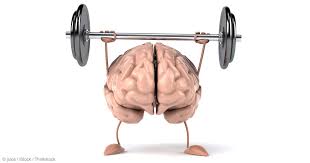 “Emerging evidence suggests a close link between brain health and overall health of the heart and blood vessels,” says Dr. Shali. Although there is no clear evidence yet to what causes Alzheimer’s, it has been clearly shown that avoiding tobacco and pursuing a healthy lifestyle that includes a balanced diet and physical activity can help maintain brain health.
“Emerging evidence suggests a close link between brain health and overall health of the heart and blood vessels,” says Dr. Shali. Although there is no clear evidence yet to what causes Alzheimer’s, it has been clearly shown that avoiding tobacco and pursuing a healthy lifestyle that includes a balanced diet and physical activity can help maintain brain health.
7. Arthritis and Joint Replacement When the cartilage that cushions your bones at the joints begins to break down, the bones begin to rub together. The resulting pain, swelling and stiffness is called osteoarthritis. Daily exercise such as walking, aquatic therapy and yoga can assist in maintaining joint flexibility. Maintaining a healthy weight is key in preventing excessive pressure on your joints that can cause this type of damage to the cartilage in joint spaces. If the damage is severe, joints may need to be surgically replaced.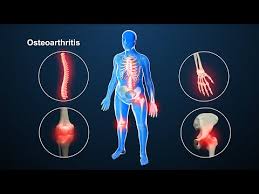
8. Osteoporosis Millions of Americans have osteoporosis. Osteoporosis is more commonly found in women, but men can be affected as well. Prevention is key to avoid weakening of your bones associated with osteoporosis. After age 50, as many as half of all women will break a bone due to osteoporosis. By age 65 to 70, men and women lose bone mass at the same rate, with a similar decrease in the amount of calcium their bones absorb. Tobacco and alcohol use earlier in life can increase risk, as can being underweight. Talk to your doctor about calcium supplements and other treatments that can help prevent osteoporosis.
9. Flu/Pneumonia Influenza and pneumonia and are among the top 10 causes of death for older adults. Vaccinations are now widely available for both diseases and are usually covered by health insurance or available at a very low cost. Ask your doctor if you should be vaccinated.
10. “Sandwich Generation” Stress In addition to caring for their own families, many boomers are caring for elderly parents. The stress of being a dual caregiver can be significant, especially on individuals who are also working outside the home, struggling financially, or dealing with other challenges. “It’s important to take care of yourself first,” says Dr. Shali. Make an effort to get enough sleep, eat right, and exercise regularly.
For more information on these and other health issues and concerns, go to this link: Life Extension Health Concerns .
.

2. Heart disease Heart disease is the leading cause of death for both men and women over age 60. After age 45, the risk of developing it increases significantly. Coronary artery disease, in which the arteries that deliver blood to the heart become narrowed or blocked, is the most common type of heart disease and a main cause of heart attacks.
 “Heart disease risk falls significantly when people avoid tobacco use, control their blood pressure and cholesterol through exercise and a low-fat, low-sodium diet, and maintain a healthy body weight,” says Dr. Shali. If you’re between ages 45 and 79, you should ask your doctor if taking aspirin might lower your risk of heart attack.
“Heart disease risk falls significantly when people avoid tobacco use, control their blood pressure and cholesterol through exercise and a low-fat, low-sodium diet, and maintain a healthy body weight,” says Dr. Shali. If you’re between ages 45 and 79, you should ask your doctor if taking aspirin might lower your risk of heart attack.3. Cancer Cancer is the second leading cause of death among people age 65 and older. “The good news is that cancer-related death rates are declining instead of rising, and that means the chances of surviving cancer is now higher than compared to the past,” says Dr. Shali. As we age, cancer screenings are routinely used to detect cancers at early stages, possibly before you can feel symptoms. Many forms of cancer can be linked to lifestyle and behavior choices. To lower your risk, it is important to make healthy dietary choices, exercise, avoid tobacco products and maintain a healthy weight.
4. Depression Depression affects more than 6.5 million Americans age 65 or older. While many have struggled with depression throughout their lives, some may experience it for the first time later in life. “It is important for both physicians and patients to recognize that depression is not a normal process of aging,” says Dr. Shali. “Unfortunately, many patients feel uncomfortable with the subject of depression. Many feel that seeking help is a sign of weakness. It is very important for you to accept that you need help. Once you decide to seek medical assistance, your primary care physician is a great start for help.”
5. Eye Problems Cataracts affect nearly 20.5 million Americans age 40 and older, and by age 80, more than half of all Americans have a cataract or have had cataract surgery. Recent advancements have improved the precision and safety of cataract surgery, resulting in faster surgeries, easier and shorter recoveries, and in some cases, better vision than before surgery. In addition, untreated macular degeneration (a progressive disease of the eye) is the leading cause of blindness in people over age 55. With treatment, the progression of the disease may be stopped or slowed. Annual eye exams can help catch vision problems in their earliest stages.
6. Alzheimer’s disease The sixth leading cause of death in the U.S., Alzheimer’s disease is most common in people age 65 and older. But up to 5 percent of people begin to experience symptoms in their 50's or even their 40's.
 “Emerging evidence suggests a close link between brain health and overall health of the heart and blood vessels,” says Dr. Shali. Although there is no clear evidence yet to what causes Alzheimer’s, it has been clearly shown that avoiding tobacco and pursuing a healthy lifestyle that includes a balanced diet and physical activity can help maintain brain health.
“Emerging evidence suggests a close link between brain health and overall health of the heart and blood vessels,” says Dr. Shali. Although there is no clear evidence yet to what causes Alzheimer’s, it has been clearly shown that avoiding tobacco and pursuing a healthy lifestyle that includes a balanced diet and physical activity can help maintain brain health.7. Arthritis and Joint Replacement When the cartilage that cushions your bones at the joints begins to break down, the bones begin to rub together. The resulting pain, swelling and stiffness is called osteoarthritis. Daily exercise such as walking, aquatic therapy and yoga can assist in maintaining joint flexibility. Maintaining a healthy weight is key in preventing excessive pressure on your joints that can cause this type of damage to the cartilage in joint spaces. If the damage is severe, joints may need to be surgically replaced.

8. Osteoporosis Millions of Americans have osteoporosis. Osteoporosis is more commonly found in women, but men can be affected as well. Prevention is key to avoid weakening of your bones associated with osteoporosis. After age 50, as many as half of all women will break a bone due to osteoporosis. By age 65 to 70, men and women lose bone mass at the same rate, with a similar decrease in the amount of calcium their bones absorb. Tobacco and alcohol use earlier in life can increase risk, as can being underweight. Talk to your doctor about calcium supplements and other treatments that can help prevent osteoporosis.
9. Flu/Pneumonia Influenza and pneumonia and are among the top 10 causes of death for older adults. Vaccinations are now widely available for both diseases and are usually covered by health insurance or available at a very low cost. Ask your doctor if you should be vaccinated.
10. “Sandwich Generation” Stress In addition to caring for their own families, many boomers are caring for elderly parents. The stress of being a dual caregiver can be significant, especially on individuals who are also working outside the home, struggling financially, or dealing with other challenges. “It’s important to take care of yourself first,” says Dr. Shali. Make an effort to get enough sleep, eat right, and exercise regularly.
For more information on these and other health issues and concerns, go to this link: Life Extension Health Concerns
LIFE EXTENSION: Highest Quality Supplements Since 1980 ; "Stay Healthy, Live Better!"
Top 5 Problems Facing Baby Boomers
Baby Boomers Face Income and Health Problems

"THE TIME TO START IS NOW!"
For an entire generation born during a time of post-war national prosperity, this generation was the promise to help build the country. They were also the generation of fighters trying to survive and thrive despite the competition of getting accepted into a good college, landing a job and buying a home. Now, as they enter the glorious retirement age, they have to battle a new set of worries as revealed in this article.
Ability to Pay Bills
With inflation rising against the cost of living, it’s becoming harder for those living on a fixed income to pay their bills. This is why many people between ages 50 and 64 are coming to terms with the prospect of delayed retirement in order to maintain their current standard of living.
There are also those who are already retired are now taking second and even third jobs to help make ends meet. For those who own a home, there’s also the added concern to be able to use one’s home’s equity as supplemental income to social security, but with more scams and risks, older people are having a difficult time figuring out how to protect themselves.
Being Able to Afford Retirement
Being Able to Afford Retirement
Surprise, surprise! According to this survey conducted by the AARP, boomers can’t afford to retire. In fact, nearly half of Americans 50 and over have $25,000 or less saved for retirement. This article also suggests that many baby boomers don’t have a realistic view of retirement, and as a result, are not putting in enough effort preparing for it. Working past age 65 has now become an economic necessity. To prepare for this financially stressful decision, many are already thinking ahead by cutting back on expenses or downsizing their homes in order to raise much needed funds for retirement.
Who’s Gonna Look Out for Me?

Social security may not be around for the next generation. In the meantime, baby boomers strive to live more simply considering that they do not have enough savings to support the standard of living they’ve enjoyed throughout their adult life.
Caring for Their Elderly Parents
Caring for Their Elderly Parents
It’s hard enough trying to survive on a modest pension, but what about baby boomers being forced to use all their savings and retirement to care for their elderly parents? That emotional and financial strain will put many baby boomers on the edge. Taking into account the unpredictable future of social security, do baby boomers have enough to live on?
Health Issues
Health Issues
According to this article, many boomers are left incapacitated even though they are living longer as “increases in longevity have instead been accompanied by increases in disability.” So while health issues can potentially eat away at savings and one’s ability to work in retirement, the underlying question is how to treat this generation with dignity?
These woes and problems are definitely not going away especially since many boomers are still relatively young and healthy. We can only hope that Medicare and social security will continue to be available for them and for the younger generations as well.
Income and Health Solutions We're working longer, well past retirement age, and if we want to continue we must do a better job of taking care of ourselves. Avoiding disability and long-term illnesses will require that we become more familiar with our bodies and possible issues. We will start to educate ourselves to forego some of the problems of aging. Many can be avoided with proper nutrition and diet. Resource for Article: Huffington Post, Author: Dorit Sasson Updated Oct 22, 2016 To begin your journey, go to the BEST source for New Health and Medical Findings From Around the World! LIFE EXTENSION! Life Extension Health Concerns

Income and Health Solutions We're working longer, well past retirement age, and if we want to continue we must do a better job of taking care of ourselves. Avoiding disability and long-term illnesses will require that we become more familiar with our bodies and possible issues. We will start to educate ourselves to forego some of the problems of aging. Many can be avoided with proper nutrition and diet. Resource for Article: Huffington Post, Author: Dorit Sasson Updated Oct 22, 2016 To begin your journey, go to the BEST source for New Health and Medical Findings From Around the World! LIFE EXTENSION! Life Extension Health Concerns
Baby Boomers and Diabesity
Baby Boomers Will Become Sicker Seniors Than Earlier Generations... Diabesity (Diabetes and Obesity)
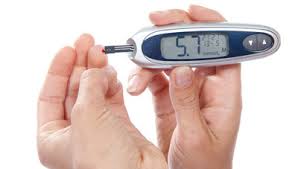 The report looks at the current health status of people ages 50 to 64 and compares them to the same ages in 1999.
The upshot? There will be about 55 percent more senior citizens who have diabetes than there are today, and about 25 percent more who are obese. Overall, the report says that the next generation of seniors will be 9 percent less likely to say they have good or excellent overall health.
That's bad news for baby boomers. Health care costs for people with diabetes are about 2.5 times higher than for those without, according to the study.
It's also bad news for taxpayers.
We used to believe that high cholesterol was the number-one risk factor. But we must
The report looks at the current health status of people ages 50 to 64 and compares them to the same ages in 1999.
The upshot? There will be about 55 percent more senior citizens who have diabetes than there are today, and about 25 percent more who are obese. Overall, the report says that the next generation of seniors will be 9 percent less likely to say they have good or excellent overall health.
That's bad news for baby boomers. Health care costs for people with diabetes are about 2.5 times higher than for those without, according to the study.
It's also bad news for taxpayers.
We used to believe that high cholesterol was the number-one risk factor. But we must 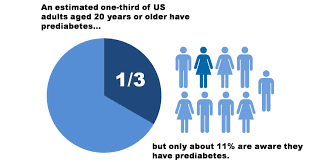 look at the whole picture. Having metabolic syndrome, appropriately called “diabesity” by Dr. Mark Hyman in his book The Blood Sugar Solution and also known as prediabetes, is a greater risk factor than having high cholesterol. In fact, it’s the number one risk factor of cardiovascular disease. (To read an interview with Dr. Hyman, see the May 2013 issue of Life Extension Magazine®.)
More than 30% of adults (50% of baby boomers) have this condition. The bad news is metabolic syndrome can kill you before you ever develop diabetes. Because it changes your cholesterol profile, increases inflammation, and raises your blood pressure levels in ways that are similar to those of diabetes, it can cause a heart attack or stroke.
look at the whole picture. Having metabolic syndrome, appropriately called “diabesity” by Dr. Mark Hyman in his book The Blood Sugar Solution and also known as prediabetes, is a greater risk factor than having high cholesterol. In fact, it’s the number one risk factor of cardiovascular disease. (To read an interview with Dr. Hyman, see the May 2013 issue of Life Extension Magazine®.)
More than 30% of adults (50% of baby boomers) have this condition. The bad news is metabolic syndrome can kill you before you ever develop diabetes. Because it changes your cholesterol profile, increases inflammation, and raises your blood pressure levels in ways that are similar to those of diabetes, it can cause a heart attack or stroke.
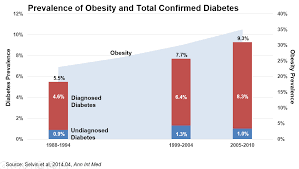 "The dramatic increase has serious implications for the long-term health of those individuals and for the finances of our nation," says Rhonda Randall, a senior adviser to the United Health Foundation and chief medical officer at United Healthcare Retiree Solutions, which sells Medicare Advantage plans.
To begin your journey to optimal health, go to the BEST source for New Health and Medical Findings From Around the World! LIFE EXTENSION!
Get the newest research for these health issues and others at: Life Extension Health Concerns
"The dramatic increase has serious implications for the long-term health of those individuals and for the finances of our nation," says Rhonda Randall, a senior adviser to the United Health Foundation and chief medical officer at United Healthcare Retiree Solutions, which sells Medicare Advantage plans.
To begin your journey to optimal health, go to the BEST source for New Health and Medical Findings From Around the World! LIFE EXTENSION!
Get the newest research for these health issues and others at: Life Extension Health ConcernsMost of the costs will be borne by Medicare, the government-run health care system for seniors, and by extension, taxpayers. Some states will be harder hit than others. Colorado, for example, can expect the numbers of older people with diabetes to increase by 138 percent by 2030, while Arizona will see its population of obese people over 65 grow by 90 percent. There is some good news in the report, too. People who are now between 65 and 80 years old have seen their overall health improve compared to three years ago. And people who are aging into the senior community are far less likely to smoke than earlier generations. "Some of these trends are very good and in the right direction," Randall tells Shots. She says the decrease in smoking shows that it's possible to change health behaviors, noting that doctors, public health professionals and policymakers used a variety of strategies simultaneously to reduce smoking. "That's a good model for what we need to look at to tackle the epidemic of diabetes and the big concern we have around obesity," she says.
 The study also ranked states on the health of their current senior populations. Massachusetts topped the list, jumping to No. 1 from the No. 6 ranking it had the last time the rankings were calculated. Vermont slipped to No. 2.
Louisiana is the least healthy state for older adults.
Sources: www.npr.org/ and LIFE EXTENSION Magazine
To begin your journey to optimal health, go to the BEST source for New Health and Medical Findings From Around the World! LIFE EXTENSION!
Get the newest research for these health issues and others at: Life Extension Health Concerns
The study also ranked states on the health of their current senior populations. Massachusetts topped the list, jumping to No. 1 from the No. 6 ranking it had the last time the rankings were calculated. Vermont slipped to No. 2.
Louisiana is the least healthy state for older adults.
Sources: www.npr.org/ and LIFE EXTENSION Magazine
To begin your journey to optimal health, go to the BEST source for New Health and Medical Findings From Around the World! LIFE EXTENSION!
Get the newest research for these health issues and others at: Life Extension Health ConcernsBABY BOOMERS: 34% Are Thyroid Deficient
Thyroid Deficiency: Preventing a Metabolic Meltdown
Fatigue, weight gain, insulin resistance, depression, and dementia are all associated with the degenerative aspects of aging. Yet many of these symptoms may actually be caused by hypothyroidism, which is often overlooked and misdiagnosed. A simple thyroid stimulating hormone (TSH) blood test can reveal your thyroid status and help you avoid misdiagnosis of these symptoms.
with the degenerative aspects of aging. Yet many of these symptoms may actually be caused by hypothyroidism, which is often overlooked and misdiagnosed. A simple thyroid stimulating hormone (TSH) blood test can reveal your thyroid status and help you avoid misdiagnosis of these symptoms.
Symptoms of Hypothyroidism
I generally prefer to observe patients closely and assess their entire range of symptoms to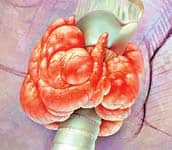 determine whether hypothyroidism is a contributor to their condition, and then to use blood tests to confirm hypothyroidism. I first look for deficiency, low metabolism or tiredness, and weight gain, though there are many other indicators.
According to the pioneering physician Broda Barnes, author of Hypothyroidism: The Unsuspected Illness, there are at least 47 symptoms of low thyroid function—most of them overlooked by blood tests. “The development and use of thyroid function blood tests,” Barnes wrote, “left many patients with clinical symptoms of hypothyroidism misdiagnosed and untreated.” For this reason, Barnes estimates that up to 34% of the adult population has some form of thyroid deficiency.
In addition to fatigue, I have found that symptoms may include depression, dementia, decreased cognitive function (“brain fog”), a weakening of the immune system, constipation, weight gain and fluid retention, irregular menstrual cycle, infection, discoloration of the skin, hair loss, and drooping eyelids. A sluggish thyroid can also be linked to a fatty liver or high cholesterol, candida, and low glucose and insulin levels. In extreme cases, untreated hypothyroidism can cause anemia, low body temperature, and heart failure.
determine whether hypothyroidism is a contributor to their condition, and then to use blood tests to confirm hypothyroidism. I first look for deficiency, low metabolism or tiredness, and weight gain, though there are many other indicators.
According to the pioneering physician Broda Barnes, author of Hypothyroidism: The Unsuspected Illness, there are at least 47 symptoms of low thyroid function—most of them overlooked by blood tests. “The development and use of thyroid function blood tests,” Barnes wrote, “left many patients with clinical symptoms of hypothyroidism misdiagnosed and untreated.” For this reason, Barnes estimates that up to 34% of the adult population has some form of thyroid deficiency.
In addition to fatigue, I have found that symptoms may include depression, dementia, decreased cognitive function (“brain fog”), a weakening of the immune system, constipation, weight gain and fluid retention, irregular menstrual cycle, infection, discoloration of the skin, hair loss, and drooping eyelids. A sluggish thyroid can also be linked to a fatty liver or high cholesterol, candida, and low glucose and insulin levels. In extreme cases, untreated hypothyroidism can cause anemia, low body temperature, and heart failure.
To start on the road to Optimal Thyroid Function:
Triple Action Thyroid
Comprehensive Thyroid Gland Support*
Role of the Thyroid
The thyroid is a small, butterfly-shaped organ in the neck, located above the collarbone and below the Adam’s apple. This tiny gland is vital to regulation of the body’s metabolism.Typical Reported Case
One patient, a 78-year-old woman who was progressively declining at home, had lost overall function, was tired and forgetful, and could not remember the names of those close to her. Routine tests for TSH showed her to be in the “normal” range, and her doctors had concluded that she was suffering from “beginning dementia,” an all-too-common misdiagnosis in the elderly. Suspecting hypothyroidism, the doctor tested her and then started her on low doses of thyroid hormone, to which she immediately responded. Her memory returned and her overall function improved dramatically. “I feel like I was rescued from the dead,” she told me. Although many patients with sub-clinical hypothyroidism show no symptomatic improvement upon treatment according to the medical literature, it is impossible to refute this anecdotal observation. It is tragic that so many elderly patients are considered untreatable and dismissed as “over the hill” when their symptoms, due to hypothyroidism, can be alleviated with hormone treatment. FOR THE BALANCE OF ARTICLE, CLICK ON THE "MORE" LINK BELOW:
Triple Action Thyroid

To start on the road to Optimal Thyroid Function: Triple Action Thyroid
Comprehensive Thyroid Gland Support*
A healthy thyroid gland not only acts as the body’s thermostat, but it’s also one of the major regulators of metabolism, including fat burning for energy. Life Extension® introduces Triple Action Thyroid, a formulation that combines critical nutrients that have been scientifically demonstrated to support healthy thyroid function. Optimal thyroid function can help improve energy levels, motivation, metabolism, healthy weight management, and concentration.Comprehensive Thyroid Support
The new Triple Action Thyroid formula provides:- Ashwagandha, an adaptogenic herb, shown to support natural production of the thyroid hormone T4. In one study, researchers found that 500 mg per day of standardized ashwagandha extract enhanced T4 levels.
- Guggul, an extract of Commiphora mukul, shown in one study to support the activity of the enzyme that converts T4 into the most active thyroid hormone, T3.
- Korean Ginseng, found in one study to reduce levels of the inactive, thyroid hormone-inhibiting reverse T3 (rT3) and support healthy T3 and T4 levels.
BABY BOOMERS: WHAT SUPPLEMENTS ARE RIGHT FOR YOU?
FIND WHAT SUPPLEMENTS ARE RIGHT FOR YOU!
This Supplement Guide will get you started with a few recommendations that are right for you. I have discovered them to be the best on the market. Quality from Someone YOU can trust!
What’s Right For Me?
So many supplements … it’s easy to get confused. No worries — your Supplement Guide will help you choose the best products that are right for you. To get started, just click the button below.
We’ll ask you simple questions, like your age, gender, and what health concerns are important to you. (And all your answers are confidential.)
This way, you get the right nutritional foundation to Stay Healthy and Live Better.
CLICK HERE >>> Vitamins Advisor: FIND YOUR SUPPLEMENTS
GET YOUR ANSWER IN 2-3 MINUTES!
Highest Quality Supplements Since 1980
ALSO, INCLUDE THE “THE DAILY DOZEN”
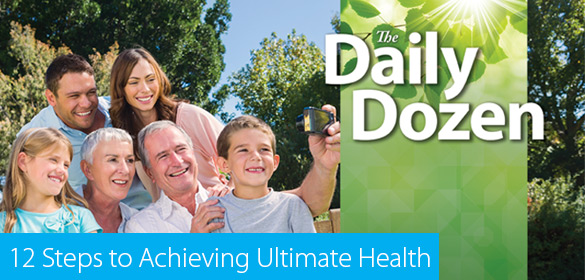
To begin your journey, go to the BEST source for New Health and Medical Findings From Around the World! LIFE EXTENSION! Highest Quality Supplements Since 1980
ADD THESE TO YOUR REGIMEN! Click Here: The Daily Dozen





No comments:
Post a Comment